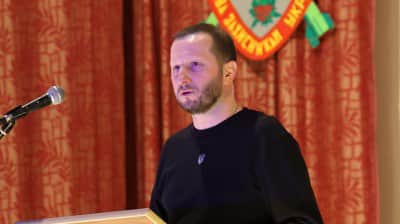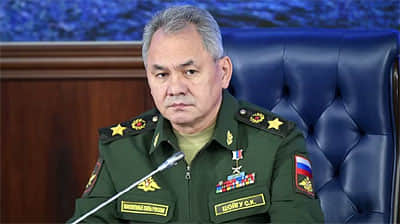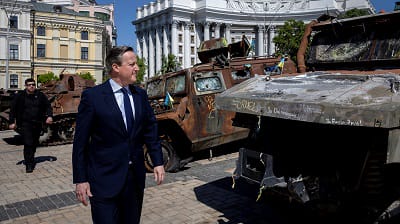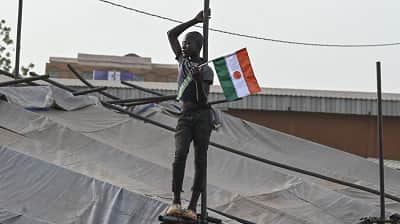A children's coach was sentenced to 17 years in prison for "terrorism" in Crimea
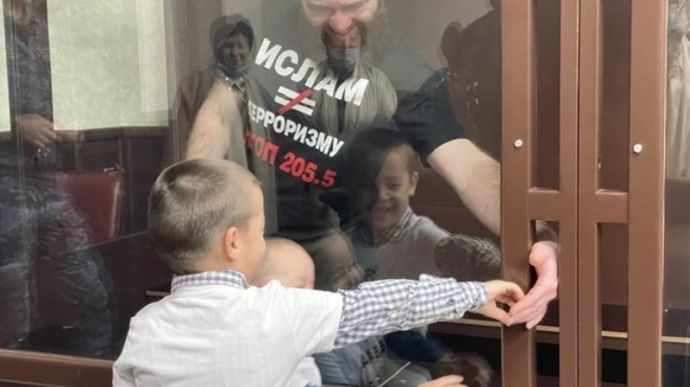
KATERYNA TYSHCHENKO — TUESDAY, 19 APRIL 2022, 16:28
In occupied Crimea, the Southern District Military Court sentenced a 37-year-old children's coach Emil Ziiadinov to 17 years in a maximum security prison for a case involving "Hizb ut-Tahrir".
Source: Krymska solidarnist [Crimean solidarity]
Details: The court sentenced Ziiadinov to 17 years in prison for an infringement of part 1 of Article 205.5 of the Criminal Code ("Organization of a terrorist organization") and for "preparing to seize power" (Part 1 of Article 30, Article 278 of the Criminal Code of Russia). The sentence includes the first 4 years in prison, and the rest in a maximum security colony, followed by restrictions for 1 year and 6 months after serving out the sentence.
According to the case file, the accused did not have weapons, explosives, ammunition, did not plan to commit a terrorist act and did not call on others to commit terrorist acts.
According to the indictment, the man organised secret meetings of "Hizb ut-Tahrir", an organisation banned in the Russian Federation, in a household in Crimea. Ziiadinov’s ex-wife fainted several times in court during interrogation - she had previously testified to an investigator in the Federal Security Service building.
Accusatory testimony against the activist was also given by a secret witness under the pseudonym "Tatarov". He claimed that Ziiadinov was a member of the "Hizb ut-Tahrir" organisation, held secret events where he and other people unidentified by the investigation actively studied the ideology of "Hizb ut-Tahrir" from its main sources and actively recruited other people to participate in the activities of this organisation.
The witness could not tell the court about how he came to know the defendant or the details of the allegedly prohibited meetings. "Tatarov", according to the lawyer Aider Azamatov, very often became confused in his testimony, and even the prosecutor was discouraged by this.
The secret witness could not accurately confirm that Ziiadinov participated in any events, but only remembered his presence at certain rallies organised by the "Hizb ut-Tahrir" party.
Elena Novozhilova, an independent philologist, also criticised the investigative examination. According to the expert’s conclusions, the investigator could not have physically been able to decrypt such a large quantity of materials, examining the disks from 29 December 2020. According to Novozhilova, this would have taken 7 times longer than was indicated in the protocol.
The defence also pointed out that Novozhilova’s conclusions showed that the investigation specialists, Palekha and Mukhammed-Zaripov, carried out the examination in violation of the procedural and methodological rules. The court did not exclude them from the evidence.
The defence and the defendant call the charges fabricated and connect the arrests to the expression of a civil position and public criticism of law enforcement agencies for repression against other Crimean Tatars.
Ziiadinov has been practising karate since childhood. While studying at the university, he took up taekwondo, and later he began to train children in his native village of Krasnohvardeiskoe in the Crimea.
He supported political prisoners among the Crimean Muslims and their families. In 2018, he went out on a single rally with a poster stating "Muslims are not terrorists". He went to court more than once to support his compatriots in Moscow and Rostov. He brought supplies to political prisoners in detention. He also came to places where previously arrested fellow believers were being searched.
In 2019, he was detained near the house of Rustem Sheikhalyev during a search, allegedly for disobeying law enforcement agencies.
On 7 July 2020, a search was carried out at Ziiadinov's house, as a result of which he was arrested.
The first arrests in this category of criminal cases began in Crimea in 2015, when the Russian authorities introduced the Russian legal standards on the territory of the occupied peninsula.


